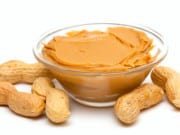Statins are the miracle drug of our time. You could argue that they are one of the most important medical advancements in recent history. They literally have already saved countless thousands of lives, and will continue to save the lives of countless others in the future. There is a good chance that you personally take statins, and if not, you are almost guaranteed to know many others who do. They are that ubiquitous in today’s society, and for good reason. Their cholesterol-lowering properties are well documented, but sometimes the best gets even better. According to a new study published in the prestigious New England Journal of Medicine, statins may now also help prevent those with cancer from dying. One pill that reduces cholesterol, effectively treats cardiovascular disease, and reduces cancer mortality? Pinch me, I’m dreaming. So what exactly are statins and what makes them so miraculous? And how might they help reduce cancer deaths?
Statins are a class of drugs that have been around for about 40 years, but have only become popular in the last 20 or so. But popular may be an understatement, because in 2003, the drug atorvastatin (Lipitor) became the best selling pharmaceutical in history. Statins work by inhibiting a key enzyme (HmG CoA reductase) in the cholesterol-production pathway used by your liver. Scientists have long observed that dietary cholesterol has basically no correlation with blood cholesterol, meaning that the cholesterol in your diet has little or no impact on the amount of cholesterol actually floating around in your blood causing health problems. It turns out that blood cholesterol is largely regulated by the liver. So turning down cholesterol production in the liver is what gives statins their ability to significantly reduce blood cholesterol. Reducing blood cholesterol leads to cleaner arteries, improves cardiovascular health, and leads to less heart attacks, strokes, and cardiovascular deaths.
Statins are typically prescribed for people with pre-existing cardiovascular disease or for those who are at high risk of developing cardiovascular disease (multiple risk factors). Typically, for those without pre-existing cardiovascular disease and whose cholesterol is higher than optimal, lifestyle changes are first recommended. These lifestyle changes include things like exercise, and modifying one’s diet to include less saturated and trans fat and more whole grains, fruits, vegetables, and fiber. This is one of the main reasons why statins are the perfect American drug. When the choice comes down to either a) begin a regular exercise routine with at least 3-5 hours of vigorous exercise per week combined with an overhaul of one’s diet that eliminates many delicious foods or b) pop a pill, it easy to see why statins are so popular. Ideally, lifestyle changes would be the better choice and research has shown that such lifestyle changes are effective at lowering cholesterol and reducing cardiovascular risk. But when the alternative is as easy as taking a pill, human nature says take the pill and enjoy seconds at the dessert bar.
How statins may help prevent cancer deaths isn’t well understood. The authors of the study that did find a 15% reduction in cancer deaths for those taking statins surmise that perhaps the statins help prevent cancer from multiplying and proliferating throughout the body. It is important to note that the study’s findings apply only to those who already have cancer, and that those taking statins without pre-existing cancer did not show a reduced risk of developing and/or dying from cancer. Additionally, the data was correlation-based, meaning other factors could be involved and that we can’t say for sure if statins truly reduce cancer mortality.
So we have seen that statin drugs are indeed quite miraculous. They are a major weapon against heart disease and cardiovascular disease, and may even help prevent cancer deaths. Being that heart disease and cancer are two of the biggest killers of Americans, one magic bullet that helps prevent both is pretty incredible. But as with everything, there is no free lunch and drawbacks, side effects, and controversy do exist. Side effects from statins are typically uncommon, but may include muscle damage and breakdown, raised liver enzymes, and possible nerve damage. Statins may also increase one’s risk for diabetes, and lead to increased artery calcification which some doctors point to as a major predictor of heart disease, heart attack, and death. As always, more research is needed, especially when it comes to a drug that so many people take and that has only been on the market a relatively short amount of time. But at least for the moment, it does appear that statins are quite miraculous in their ability to treat cardiovascular disease, and now perhaps reduce the risk of dying from cancer in those who are already diagnosed. If you are over 40, regular checkups and blood work, combined with the recommendations of medical professionals is the best way to make sure that your heart and cardiovascular system is functioning optimally. So if you are currently taking statins or if you are prescribed them in the future, hopefully now you know a little more about them and how they do what they do.
Article Courtesy: Andrew Steingrube







mml says
Really? do you work for the pharmaceutical industry?
Truth about how statins act:
Excerpted from an article available online:
Steven K Baker MD and Mark A. Tarnoplasky, MD PhD. Statin myopathies: phathophysiologic and clinical perspectives. Clin Invest Med 2001; 24(5): 258-72
Cholesterol biosynthesis and the isoprenoids:
The inhibition of HMG-CoA reductase by the HMGRIs
is approximately 14 steps and 9 to 10 enzymatic
reactions removed from the terminal step(s) in cholesterologenesis
Furthermore,
mevalonic acid, the immediate product of HMG-CoA
reductase, is a pivotal precursor intermediate which
gives rise to the vital isoprenoids en route to cholesterol.
It is not surprising, therefore, that inhibiting this
important biosynthetic pathway causes pleiotropic
metabolic consequences33,34 (Fig. 1).
Prenylation is a fundamental element of posttranscriptional
lipid modification of proteins and other
compounds and affects their function. Some of the
known isoprenoids include the following: (1)
isopentyladenosine, required for transfer RNA synthesis;
(2) dolichols, required for glycoprotein synthesis;
(3) heme A, a polyisoprenoid component of the electron
transport chain; and (4) ubiquinone, a polyisoprenylated
quinoid cofactor of the electron transport
chain, which accepts electrons from complexes I and
II.6,35,… It is estimated that
over 1% of mammalian cellular proteins are isoprenylated.
38 Isoprenylated proteins have been implicated in
smooth muscle cell migration and proliferation,33 and
skeletal muscle cell growth and differentiation.39–42
These conclusions were borne out of experiments in
which statin treatment impaired cell development in
culture, whereas the coapplication of mevalonate or
its distal metabolites (i.e., farnesol or geranylgeraniol)
reversed many of the inhibitory cellular effects of
statins.
in reference to #1--interference with tRNA--statins interfere with selenoprotein tRNA, and specifically decrease selenoprotein N. the glutathione peroxidase family, and the thioredoxin reductases, were recently identified as selenoproteins. theoretically, thru this action, statins could interfere with glutathione reductase activity which re-cycles glutathione within the brain--the major anti-oxidant within the brain.
in reference to #2--dolichols--the substantia nigra is composed largely of lipids. the Most abundant lipid comprising the Substantia Nigra is DOLICHOLS- accounting for up to 45% of the total amt of lipids within this structure.
# 3--decreasing heme A--recent evidence that reduced heme A is a pathologic finding in alzheimer's
statins also interfere with the funciton of lipid rafts --important functions of lipid rafts in refererence ot neuro system:
excerpted from "Membrane Lipid Rafts and their role in Axon Guidance. Guirland, C and Zheng, J Q.
"...Lipid rafts have recently received considerable attention because they are thought to be involved in many cellular functions, in particular, signal transduction for extracellular stimuli. Many of these functions
are also intimately related to the processes involved in neural development, including neurotrophic factor signaling and synaptic plasticity. Recent studies from our lab and others have indicated an important role for lipid rafts in axonal growth and guidance. Specifically, our data show that lipid rafts on the plasma membrane provide platforms for spatial and temporal
control of guidance signaling by extracellular cues..."
CJ Brooks says
This article (not the cogent reply) is nearly criminal in it's degree of misinformation. Statins can be deadly or at least debilitating. And it is not cholesterol but inflammation resulting from (primarily) an overload of refined cars and sugar that is causing a rapid increase in CVI's.
Statins are NOT a panacea; they are a curse! They are a cash cow for the Pharmaceutical industry who are simply in the business of RETURN BUSINESS. Cholesterol and fats are GOOD for you! Read SOMETHING relative to the subject matter BEFORE you publish; here is but one example: http://www.irishtimez.com/2012/02/confirmed-once-again-statins-likely-harm-the-heart/
there are literally hundreds of others.
This is so disappointing.